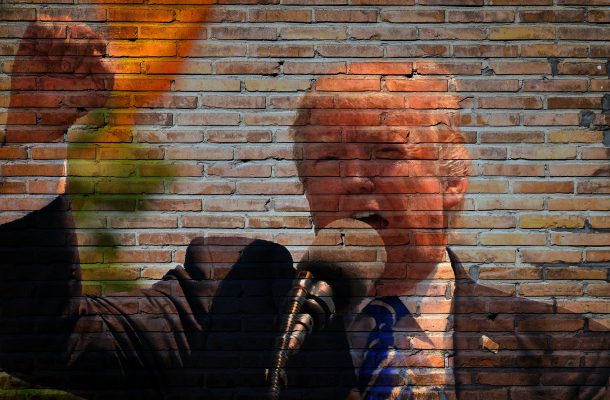Arvanitakis on American Politics: This week’s controversies, chaos and why Trump keeps his base

What a week…
This week’s events in the United States once again highlight how the Trump Administration continues to move from chaos to controversy (and back).
Most obvious was the vote in the House of Representatives to impeach the President along party lines. On Wednesday, The House of Representatives voted to pass two articles of impeachment charging President Donald Trump with abusing his office and obstructing Congress. While the final vote went as expected, the decision by Democrats in Trump districts to support the impeachment was surprising to some.
Almost a week earlier, the politically divided House voted to force President Trump to come to Congress for authorization before taking further military action against Iran. The vote which again was almost along party lines – 224 to 194 – aims to curtail Mr. Trump’s war-making power.
Democrats accused Trump of pushing towards war with Iran without a plan and raised concerns that the President has failed to replace key national security positions in the Administration. Republicans responded by criticising the Democrats for not backing the President at this sensitive time with Rep. Doug Collins even accusing them of being ‘in love with terrorists’ – something he later apologised for.
This has all been followed by an explosive interview granted by Lev Parnas. Parvas, a key player in Ukraine Affair and close colleague of Trump’s personal lawyer, Rudy Giuliani, stated that Mr Trump was well aware of events in the Ukraine that led to the impeachment – something Trump has denied. Parnas, who is facing a series of criminal charges, confirmed he did not directly speak with Mr. Trump directly but was told by Giuliani that Mr. Trump was kept in the loop.
The Democratic debate
While all this was happening, the Democrats held their first presidential debate of 2020 with only six candidates taking the stage. Less than three weeks from the Iowa caucuses begin, this was touted as a make or break moment for the participants. The Iowa caucuses are important because they are the first major contest of the presidential primary season.
It is important to note that the demographics of Iowa are not representative of the rest of the country but because they are first, they become a strong indicator to the mainstream media about presidential electability.
This is one of the explanations for why the Democrats have gone from celebrating a highly diverse field to one that is made up of all white people: the demographics of Iowa set the tone.
The debate failed to reach any high points and the best that can be said was that no one seriously messed up but neither did anyone stand out. While most commentators felt there was no clear winner, CNN’s Chris Cillizza saw the obvious loser was Tom Steyer stating, “Simply put, the billionaire businessman looked badly out of his depth.”
The two front runners are now the establishment’s preferred moderate candidate, Joe Biden, and the outspoken Senator Bernie Sanders. The question is whether the Democratic establishment would accept Sanders or work to undermine his chances as they did in 2016 and losing the broader support of his base.
Meanwhile the Trump base has not moved
While this has all been happening, there is little, if any, evidence that this is impacting on Trump’s supporter base.
One issue that has confused many political commentators and theorists is how the many controversies surrounding Donald Trump do not impact his supporters. The answer is complicated and something I has driven my research.
There are three points to note here. The first is that one of Trump’s key election platforms was to disentangle the USA from overseas conflicts. While many believe the decision to kill Iran’s Maj. Gen. Qassem Soleimani will eventually lead to greater conflict, Trump has been praised for eliminating a terrorist backer and also stepping back rather than escalating the conflict when Iran responded. All this with no loss of life to Americans.
The second is that Trump’s breaking of standard protocols is what his base literally ‘love’ about him. His open mocking of rivals, promise for change and attacking the establishment is what many find appealing about him including many former Democrats.
While many Americans may cringe when Trump abuses those around him, verbally stumbles or in his treatment of other world leaders – particularly friends – many are amused by the ‘rage’ this instils in Democrats and the broader establishment.
The third reason – linked with the second – has been captured in a powerful new book by Nicholas Kristof and Sheryl WuDunn titled, Tightrope: Americans Reaching for Hope. Kristoff and WuDunn point out that while the stock market continues to head towards record highs, but working-class Americans – which are defined as those without college degrees – struggle.
Their argument is that we have seen many commentators reflect un the dwindling middle class, but the working class of America has been ignored.
While the evidence is overwhelming, one figure the provide clearly highlights the challenges of America’s working class: “If the federal minimum wage in 1968 had kept up with inflation and productivity, it would now be $22 an hour. Instead, it’s $7.25.”
The verdict is that both Democrats and Republicans have let America’s working class down. As Time reported when interviewing 24-year-old Trump supporter Shannon Goodin:
A first-time voter who doesn’t consider herself a Democrat or a Republican, Goodin says Obama was “really likable” but Trump earned her support by being “a big poster child for change.” “Politicians don’t appeal to us,” Goodin says of why Trump earned her trust
You can accuse Trump of many things but being a ‘standard’ politician is not one of them. We can expect the controversies and support to continue.
Professor James Arvanitakis is the Executive Director of the Australian American Fulbright Commission – one of the world’s most prestigious international education and cultural exchange programs.












